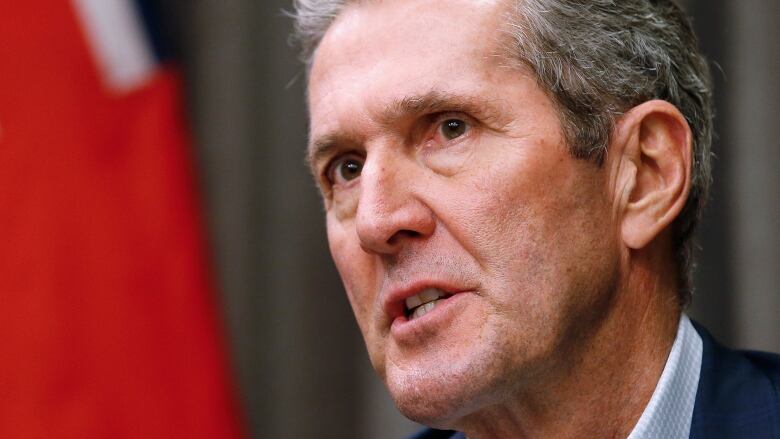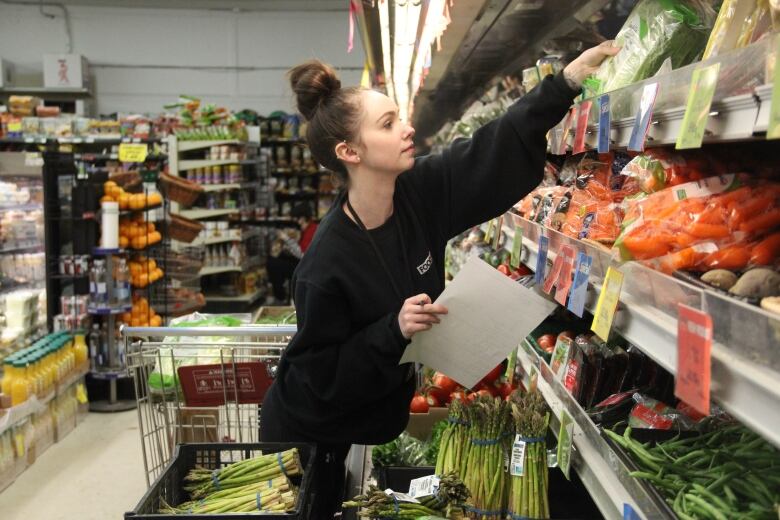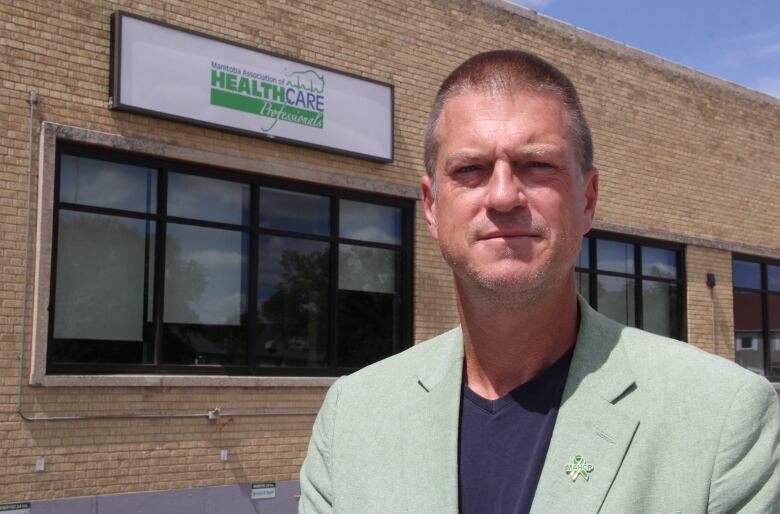Bonus pay on the way for nearly 80,000 Manitoba front-line pandemic workers
Premier Brian Pallister hopes recipients spend some of the money to support the local economy

The Manitoba government says a promised pay bonus for nearly 80,000 workerson the front lines of the pandemic is coming this week.
A month after applications for the $120-million Risk Recognition Program closed, the province announced Wednesday that 78,442 workers are receivinga one-time pay bump of $1,377.
The benefit, which was originally announced in mid-May, was intended to compensate workers in what Premier Brian Pallister described as"front-line, public-facing roles" for the risks they face working in a pandemic.
"We sincerely hope that this is money that you can use for your purposes, and we hope that you consider that with this extra money, you might be able to spend some to support a local business or to support the local economy," Pallister said at a news conference Wednesday morning.
Qualifying workers from grocery store employees to health-care workers to cleaning staff and child-care providers will receive an emailnotifying them when the money is in their bank account. The $1,377 workers will receive is the amount left over from the $1,530 paymentsafter 10 per cent is remitted for taxes.
WATCH | Workers receive a one-time pay bump:
Before applications closed in June, 90,000 people applied for the program. Some such as manufacturing workers were turned down because they didn't meet the criteria, the premier said.
Don't want to ask for money back: Pallister
Applicants had been waiting without information on the program until Wednesday.
Pallister said checking over each application was a time-consuming process.
"It's important to get it right and to make sure you're not sending out cheques and then asking for them back."
Eligible positions included those in the health care, social services, justice, security, transportation, food and beverage, hotels, and essential retail fields.
Among those who will receive payments are37,060 workersin retail services and lodging, 27,085 in health care, 9,325 in social services and 3,440 in transportation.
Workers were only eligible if they earned less than$5,000 a month before taxes, excluding overtime. When the program was announced, the province only allowed workers whose pay didn't exceed $2,500 per month, but the criteria was expanded in June.
"Many working Manitobans were exposed to on-the-job risks they'd never experienced prior to the pandemic," Pallister said.
"We can't thank them enough for the roles they played in supporting all Manitobans through this difficult time."

JeffTraeger,president of theUnited Food and Commercial WorkersLocal 832, said the individual payments will help people who need it.
It's a "month's wages, or more, for someone who's workingin a low-income job," he said.
Traeger said he was concerned by Pallister's comments Wednesday that eligible workers would be "public-facing." That may meanworkers at meat-processing plants, an industry beset by COVID-19 outbreaks elsewhere, didn't qualify, Traeger said.
"We saw what happened in Alberta with the plants that got shut down because there werea few cases one day, and a week later there was 900 cases," he said.
"It looks like they might be left behind by the province."
A governmentspokesperson later told CBC News thatmeat handlers at a processing plant wouldn't qualify.
The bonus pay program has received pushback from labour groups who argued it was disingenuousfor the province toclaim that workers such as nurseswere eligible, when in fact many weren't because their salaries exceeded the cap.
Manitoba Nurses Union president Darlene Jackson said her members felt undervalued before COVID-19, thanks to frozen wagesthe past four years. The government had a chance to recognize nurses through the pay bonus program but failed, she said in a statement.

Bob Moroz, president oftheManitoba Association of Health Care Professionals, arguedit'sunfairtwo people could work side-by-side, doing the same work, but only one person would receive the pay bump.
"Somebody who works less than full time may qualify based on the gross salary requirement, [while] someone who works full time and [is] therefore theoretically at a greater risk will not qualify," he said.
Morozsaid he heardsome memberswere hesitant to apply, since they knew some of their colleagues would be left out. That speaks to how caringhealth-care professionals are, he said.
"If one child gets an ice cream cone and the other one doesn't, you've got a problem with your two kids, right?"
Pallister said he suspectsmost eligible workers applied for the funding. He credited labour groups and unions with ensuring their members were aware ofthe program.
WATCH | Premier Brian Pallister on bonus pay for workers| July 29, 2020:














_(720p).jpg)


 OFFICIAL HD MUSIC VIDEO.jpg)
.jpg)



























































































